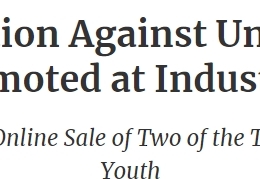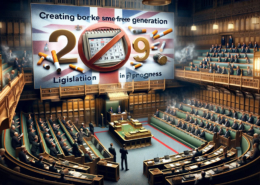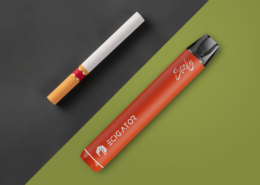New Worldwide Vape Regulations in 2024: Flavor Bans, Marketing Limits
As 2023 ends, several countries have passed new vape regulations set to take effect on/after January 1, 2024. These incoming laws include restrictions on flavors, marketing tactics, taxes and more. Here’s an in-depth look at some key vape regulations worldwide and their potential impacts.
Limiting Youth-Appealing Marketing in the U.S.
The United States, as the largest global vape market, often sets trends for the e-cigarette industry. To reduce youth exposure, the U.S. is implementing tighter vape marketing regulations in 2024.
Starting January 1st, New York State will ban the use of vape brand names, logos or other identifiers on any products except the vape devices themselves. This prevents branding on promotional merchandise. Vape companies also cannot sponsor events like sports competitions and concerts in New York. In addition, brands will be prohibited from offering gifts related to vape purchases in stores.
These new marketing rules align regulations for e-cigarettes with those already in place for traditional tobacco products. By restricting opportunities for enticing youth-oriented branding and sponsorship, authorities hope to curb underage experimentation and addiction.
Beyond marketing, some U.S. states aim to reduce youth appeal through vape product design changes. A new law in Texas bans candy or fruit-flavored packaging as well as cartoons or celeb images that could promote vapes to minors. These rules take effect January 1, 2024.
Banning Flavored Vapes in the Netherlands and Bulgaria
The Netherlands passed a comprehensive ban on flavored vape back in 2021. This legislation will finally take effect on January 1, 2024 after an 18 month delay due to initial public opposition. The ban prohibits all non-tobacco flavors for vape products as part of the country’s plan to achieve a smoke-free society by 2040.
Bulgaria will also implement new restrictions on flavored vaping, stopping sales of all non-tobacco flavored heated tobacco products on January 1st. The amendment bringing about this change was passed quickly and without debate in Bulgaria’s National Assembly. The flavor ban complies with the European Union’s Tobacco Products Directive, preventing potential legal consequences for Bulgaria.
Both countries’ bans on flavored vapes intend to reduce youth appeal and subsequent experimentation. However, some adult vape consumers argue this legislation limits reduced harm options for smokers looking to quit through flavors other than tobacco.
Australia’s “Import Ban” on Disposables and Tax Hikes
Australia is poised to implement a sweeping “import ban” policy prohibiting the importation of disposable vape products starting on January 1, 2024. The law effectively blocks disposable vapes from entering Australia after this date. Disposable vape brands will need to find ways to legally manufacture devices within the country to supply the Australian market.
Alongside this disposable vape import ban, Australia plans to relax medical prescription guidelines for vaping products. Beginning January 1st, nurse practitioners and doctors beyond just GPs will be able to prescribe vapes to patients for smoking cessation purposes. Patients can then have their therapeutic vape prescriptions filled at pharmacies. However, critics argue prescriptions are often a mere formality anyway and won’t necessarily expand legal access.
Some countries are using tax policy rather than bans to deter vaping. Belgium will implement a €0.15 per ml tax on vape liquids as of January 1, 2024. Over in Indonesia, authorities are raising consumption taxes on vapes by 15%, leading to a nearly 30% total tax rate for the e-cigarette industry this year.
Tax hikes aim to reduce vaping uptake, but consumers argue they could inadvertently push some users back to more harmful traditional cigarettes instead.
Calls for Transparency and Inclusiveness in Policymaking
According to vape industry associations in Indonesia, new laws like the incoming tax increases lacked sufficient transparency and stakeholder engagement during development. Groups call for improvements in vape policymaking processes worldwide:
- Involving all affected parties like consumers, retailers and manufacturers
- Weighing potential public health benefits against unintended consequences
- Considering impacts on access to reduced harm options for adult smokers
- Providing credible scientific evidence to support regulations
- Allowing reasonable timelines for regulatory compliance
- Ensuring consistent rules between tobacco and vape products
More open, inclusive policy development could lead to balanced, effective vape regulations.
Only time will tell whether incoming marketing limits, flavor bans, taxes and import restrictions can achieve aims like reducing youth vaping rates and expanding adult cessation access. But coordinated efforts between government agencies, health groups, industry representatives and consumer advocates likely provide the best path to balanced frameworks.
- Is Vaping While Driving Illegal in North Carolina? - June 29, 2025
- Vaping Laws in North Carolina –A Comprehensive Guide for 2025 - June 29, 2025
- Is Vaping While Driving Illegal in New Mexico? - June 28, 2025









